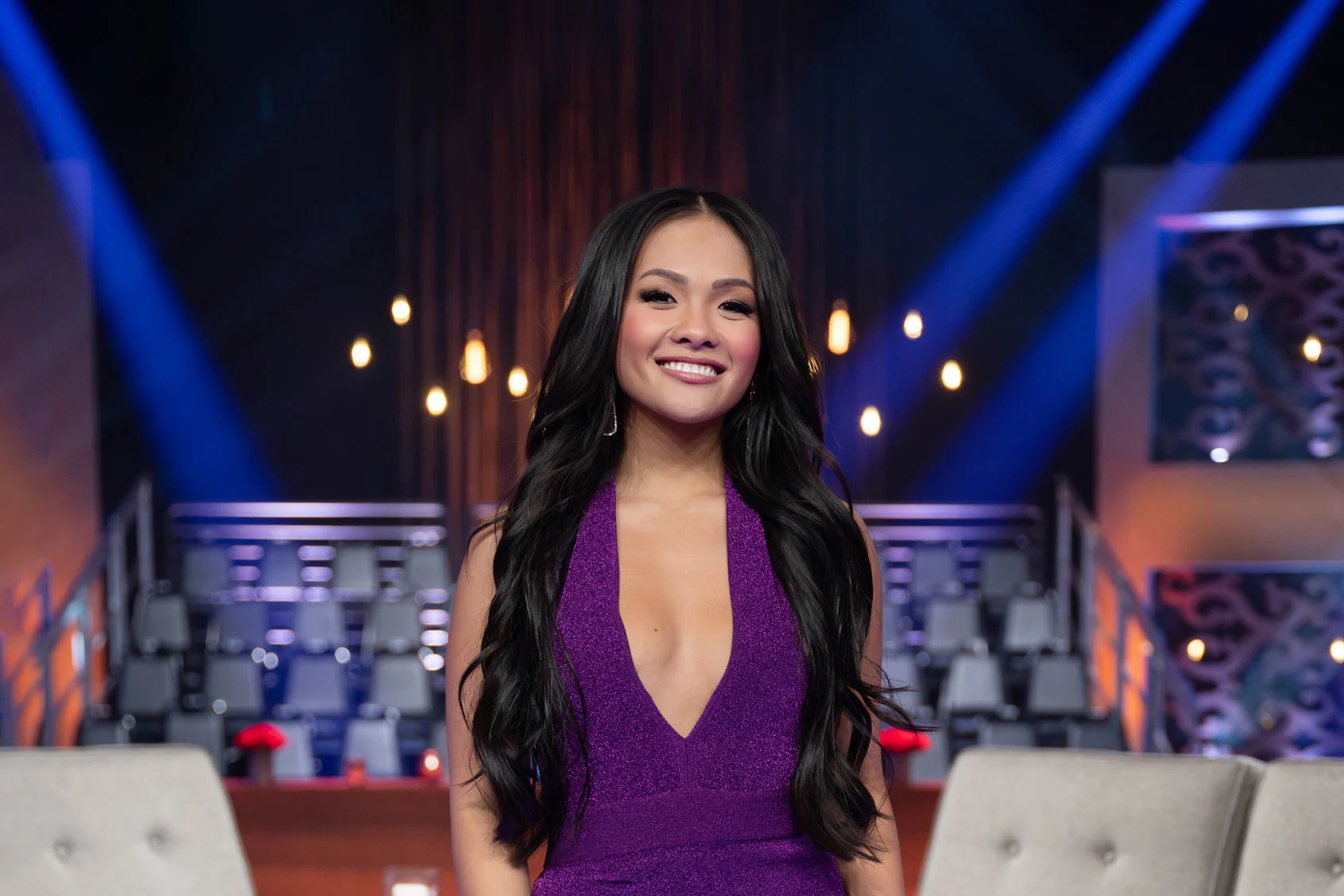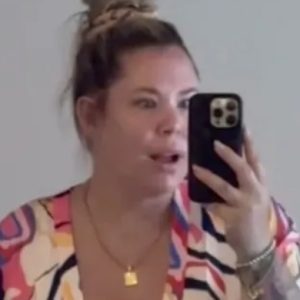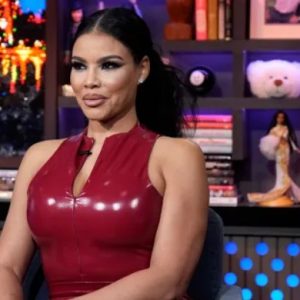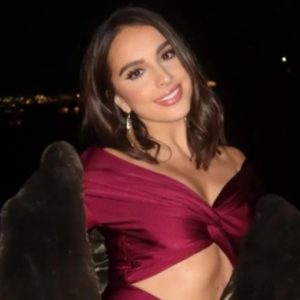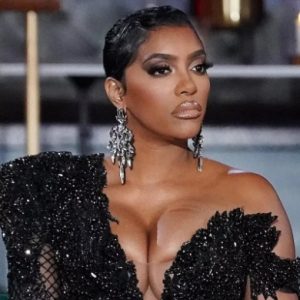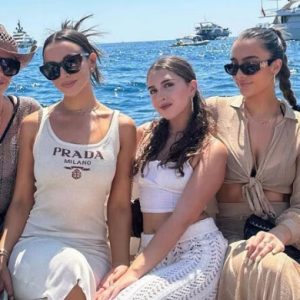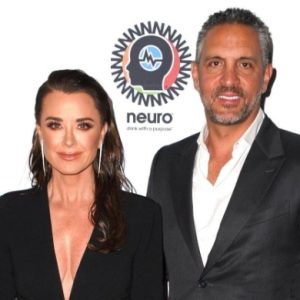“The Bachelor” franchise is evolving. Or so we are being told.
The flagship ABC dating show just finished its 28th season of “The Bachelor” with resident himbo in charge, Joey Graziadei receiving his happily ever after with fiancée Kelsey Anderson while simultaneously stealing the hearts of the collective Bachelor Nation. Following that season high, the franchise shook things up by casting its first Asian lead with Jenn Tran for the upcoming season of “The Bachelorette.”
Tran, a Vietnamese American student studying to be a physician’s assistant, placed as one of the top six contestants this season. The 26-year-old stuck out for her transparency about her non-traditional and complicated family background. Her vulernabilitity, sense of humor and lightness were her most shining traits during the season. However, while Bachelor Nation generally liked Tran, she wasn’t their first nor even their second pick for the new “Bachelorette.”
When “After the Final Rose” last Monday, Tran was announced as the first-ever Asian contestant as a “Bachelor” lead, this historic event was met with a mixed reaction from audiences. The fanbase had expected this season’s standout, Maria Gorgas or possibly runner-up Daisy Kent to take up the “Bachelorette” mantle.
Sadly, this tepid reception indicates that Tran isn’t coming in with readily available fan support. Therefore, the “Bachelor” franchise and its producers are obligated to Tran as the show’s first-ever Asian “Bachelorette” to protect her, as it has failed to do with its previous non-white contestants.
The backlash of racist fans
Almost every season, like clockwork, nonwhite contestants receive online racial hate. This season, half-Filipino and Black third-place runner-up, Rachel Nance was a target of that racial bullying and hate. Gorgas and Nance had a slight disagreement in an episode, causing Gorgas’ rabid fanbase to attack. It led to thousands of comments on Nance’s social media chastising her for not being a “girl’s girl,” disrespecting her family’s culture and posting disturbing, racist comments like “jungle Asian.” Nance was able to address the comments during the “Women Tell All” episode, saying, “I would just want to remind people that, you know, we’re not just faces on a screen,” and that fans are quick to “pop off because there’s no consequences” but that the contestants “have to pay the consequences mentally and emotionally.”
Host Jesse Palmer said, “Here’s the thing, Bachelor Nation. We love your strong opinions. I think it’s so important that we uplift these women, who are brave enough to be vulnerable and to share their stories with Joey and with all of us at home. These women, they deserve our praise and not our hate.”
However, Nance’s experience with the vitriolic aspect of “The Bachelor” is an indication that the franchise, no matter how evolved it says it has become, still struggles to amplify and support its nonwhite leads and contestants to its outspoken and activated white audience. The show’s previous Black leads are clear examples of this repeated and unaddressed mistreatment.
Racist contestants competing for love
Starting with the show’s first Black lead, Rachel Lindsay, took up the mantle in 2017 but was stuck with a racist contestant vying for her love. Internet sleuths discovered a history of contestant Lee Garrett’s deeply bigoted tweets. One of which said, “What’s the difference between the NAACP and the KKK? Wait for it . . . One has the sense of shame to cover their racist a** faces.” Former host Chris Harrison said before Garrett was cast, everyone behind-the-scene was unaware of his tweets. During the season, Garrett also had a long-standing beef with a contestant Kenny King, who is Black. Garrett called King “aggressive” and told another Black contestant that King was “playing the race card.”
In 2020, a post-George Floyd America led to the half-Black and half-Mexican contestant Tayshia Adams as the first Latina Bachelorette. But she was only considered Bachelorette when Clare Crowley dropped out of her duties halfway through the season. Adams was then only given half a season to turn around the very contained COVID-19 season.
“The Bachelor’s” repeated infractions against its Black contestants came to a head with the disastrous Matt James season. Amid the Crowley/Adams hybrid season, the half-Black James was cast as the first-ever Black “Bachelor.” However, during his run, Redditors found a photo of front-runner, Rachel Kirkconnell, a white girl from the South participating in an antebellum party in 2018. Since the series is filmed in advance, James didn’t know her racist history and ended up with Kirkconnell. It all imploded in a deeply uncomfortable live episode hosted by Emmanuel Acho.
A racial reckoning
The controversy didn’t stop with just contestants though. On “Extra,” former Bachelorette Lindsay interviewed then-host Harrison about the antebellum photo discovery. Harrison questioned if this was in fact bad news, or if it was just seemed worse because of modern sensibilities. “Rachel, is it a good look in 2018 or is it not a good look in 2021?” he asked.
“It’s not a good look, ever, because she’s celebrating the Old South. If I went to that party, what would I represent at that party?” Lindsay countered.
Harrison continued, “The woke police is out there, and this poor girl, Rachel, who has just been thrown to the lions. I don’t know how you’re equipped when you’ve never done this before, to be woke enough, to be eloquent enough, to be ready to handle this.”
“The Bachelor” denounced Harrison’s comments, sacked him and said it was trying to achieve “greater equity and inclusion within ‘The Bachelor’ franchise, we are dedicated to improving the BIPOC representation of our crew, including among the executive producer ranks.” After the controversy, Lindsay and James were critical of how the show handled its racial issues, in Lindsay’s case officially breaking ties with the franchise. James commented on how the show depicted “dangerous stereotypes” and “negative depictions” of his Black father and other fathers in the media.
A new era . . .?
Since the show’s brutal reckoning with race, the franchise has changed its format, its host and even longtime show creator and executive producer Mike Fleiss after allegations of misconduct. However, the franchise is still unsure how to comprehensively and sensitively address race. Last month, at a Television Critics Association press tour, NPR TV critic Eric Deggans asked the franchise’s bosses, “Why does the show find it so difficult to handle race issues?”
A newer producer Claire Freeland, who wasn’t a part of Lindsay’s and James’ seasons said, “I can speak to where we are now . . . Our goal is to represent the fabric of the country, not just in terms of diversity and ethnicity, but also ability and body types and representing where people are from in the country as well.”
The other producers avoided answering the question when Deggans pressed them. He said, “I guess we have our answer.”
The path forward is simple. For Tran, whatever changes new producers continue to echo need to be enforced to the fullest degree. This includes thorough criminal and social media background checks on contestants to prevent racist incidents like in Lindsay’s season. Or even to prevent triggering and problematic contestants from infiltrating a space that could harm a woman, a woman whose family history has aleady been marked with argumentative, angry parents.
In addition, “The Bachelorette” should monitor Tran’s Instagram through a team of trained social media professionals capable of censoring racist comments on her accounts. Most importantly, it should put out a zero-tolerance racism policy statement before the season begins so that the tone is set with the show’s aggressively conservative fanbase.
Furthermore, is the show even equipped to highlight the Vietnamese-American experience? Are people behind the scenes educated on what this means and what Tran’s experience will be like to represent on television across the U.S.? Tran had told Graziadei that hometown dates could be “complicated” because her mom, who’s Vietnamese, doesn’t fully understand American culture. How can the show bring those two cultures together to really showcase her Asianness and her Americanness in equal parts? In order to execute this with care and concern for Tran, her family and culture, they could ask Tran what she needs to feel supported throughout this journey of finding love. Or the production could consult Asian American groups that are more than available to advise on any needed context and pitfalls to avoid.
In the process of finding love, Black contestants and leads have shouldered the brunt of maltreatment from the franchise’s racist, middle-American fanbase and its meddling producers. In this new, revamped age of “The Bachelor,” it seems the producers are dead set on selling change. This success is fully banking on the hope that Tran is supported and uplifted in handling the baton that’s been passed to her as the first Asian to lead the franchise. It’s not looking too promising as last season she was mistaken for another Asian contestant on the show’s official Instagram account. So is all this change and progress a sham? We have to wait and see, but with its contestants of color, it’s often the same song and dance on “The Bachelor.”
